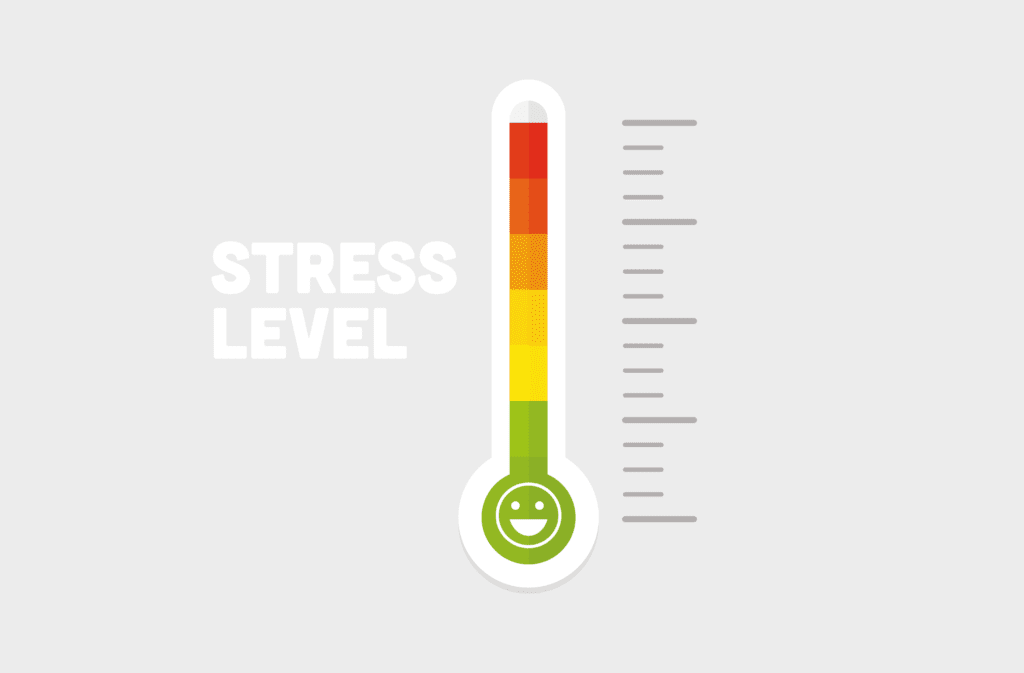Stress is a very Physical emotion
For most people it is Problematic Physical Symptoms that cause them to Seek Help
We are Lucky that our body tries to tell us when we need to Pay Attention
Do not Ignore the Signs of Stress
10 Symptoms of Stress
- Feeling on Edge
- Difficulty Relaxing
- Poor Concentration
- Disturbed Sleep
- Feeling Tired or Drained
- Reduced Motivation and Enjoyment
- Headaches
- Digestive issues
- Increased Irritability
- Restlessness
Of course, everyone’s symptoms can be different, and this list is not exhaustive, but they are certainly the most common symptoms of stress. When you read that list, it is a lot to be experiencing!
5 Causes of Stress
Stress can of course be caused by a wide variety of things, but these are the Most Common Causes, all of which can Overcome and Conquered with the Right Help.
- Unhealthy Boundaries
- Taking on Too much, Not Resting, Poor Self-Care
- Feeding Symptoms of Anxiety and Fear
- Excessive Worry
- Real life problems
Unhealthy Boundaries
We cannot control other people, their actions and their boundaries (or lack of). We cannot expect others to have the same morals and ethical approaches to other people as we do.
This can be difficult for those who:
- who like to help others
- are genuinely caring and compassionate people
- who like to do a good job
It is a trap I have fallen into many times myself, and something that I continually have to work on. It is rare that an employer or a ‘friend’ will tell us we are doing too much and tell us to stop. The wrong type of people will praise you repeatedly for your lack of boundaries, for always saying yes. This reinforcement can mistakenly cause us to believe that what we are doing is good and ‘right’.
If we do not want to suffer, we must accept that we need to implement boundaries for ourselves.
This involves learning to recognise when we need to say no, or not right now. It is also about learning to balance our own needs with others needs. And importantly it’s also about being able to pull away from someone when it is clear they do not care about our wellbeing.
Taking on Too much, Not Resting, Poor Self-Care
Our unhelpful beliefs can very much influence this.
This might sound like:
- Doing nothing is lazy
- I can’t stop if there’s still things to do
- Putting my own needs first is selfish
- It would make me a bad person if I didn’t
- I’m managing
These unhelpful beliefs can cause us not to value our own needs and what is important for us enough. If we believe that relaxation is lazy, and that we should only stop when everything is finished, then we are never going to get the rest we need, it will always be go go go which is very stressful.
Self-care is essential, not an optional, a necessity. Yet many people treat it as an extra that they will do at some point, after they have finished doing everything for everyone else first. Self-care should not only be adopted once we hit crisis point, it is something that is needed along the way to avoid the crisis point happening in the first place.
Feeding Symptoms of Anxiety and Fear
There are lots of ways we can unintentionally feed anxiety and fear. Naturally when something makes us feel uncomfortable, we want that feeling to go away. This can commonly result in avoidance. But this is only a short-term solution, it is not overcoming the anxiety or fear, it is just delaying it until next time. And the more times we delay it, the bigger the problem becomes.
This could manifest as procrastination, avoiding making decisions, avoiding socialising, avoiding doing something new, and many more examples.
In order to stop the fear caused in this way, we must face and overcome the anxiety or fear.
Excessive Worry
Lots of people worry excessively, often about imagined hypothetical situations. Worry has its purpose of course, of keeping us alive and away from danger. But most things that people worry about are scenarios that might never happen, even if they did wouldn’t happen in the way you imagine, and the worry doesn’t help anyway.
Building scenarios in your mind and trying to imagine how you would solve each and every possible outcome is common, and exhausting.
Worry can go a step beyond this when not only are we believing the thoughts, but we are also acting as if they are true and valid (even though they rarely are).
Learning strategies to disengage with worries is vital to reduce these stress related symptoms.
Real life problems
Real life problems can definitely be a cause of symptoms of stress. What is important with these situations is to make sure if there is something you can do to improve the situation, you are taking those steps, rather than putting off dealing with it.
Sometimes the situations are beyond our control and we can’t do anything to improve it, in which case we have to learn to let it go and focus our energy on the things we can control.
This Stress Awareness Day, take time to identify what the causes of Your Stress are right now, and think about what steps you could take this week to start improving your symptoms.




